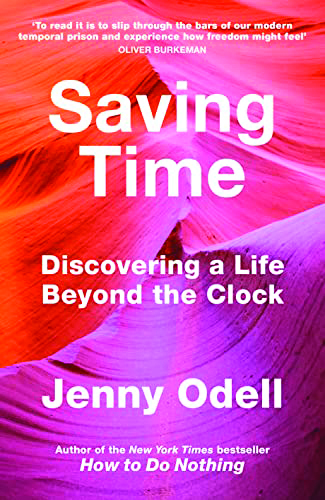Gridfailure and Interstitia, Sunyata Ontology (Pax Aeternum Records)
Imaginative collaborative album from North Carolina-based Interstitia (the noise-rock nym adopted by Graham Scala) and New York-based Gridfailure (a solo project from David Brenner, also of Diminishing). This is underground aggro ambient, if I’m going to try to put a finger on it; the aim is to evoke visions of “a disparate not-too-distant dystopian America, with military/espionage tactics, civil unrest, off-the-grid cults and militant factions, covert government police, the takeover of artificial intelligence, and the looming threat of nuclear catastrophe more realistic than ever.” As always, some of that isn’t reflected in the offerings here, but it does deliver a lot of grimy, spooky noise. Opener “Call Of The Black Hand” sounds like an electric shaver fitted with phase-shifter effects, which is in the ballpark; “Omega Agency” is more along the lines of Rhys Fulber’s Noise Unit project, meaning it’ll appeal to goths and people like that. Worth your while if you like apocalyptic underground-DJ tuneage. A-
Esther Rose, Safe To Run (New West records)
I can hardly believe the hype that’s washing over the landscape with regard to the fourth rather pedestrian country-indie album from this New Orleans-based chanteuse; pound for pound, all the praise from Pitchfork Media and whatnot has reached the same level of ridiculousness — OK, in an indie sense — that Katy Perry’s first record rode in on. I mean it’s all fine and everything, a little bit ’90s-moonbat pop, a Natalie Merchant aftertaste and whatnot, wrapped in four-chord Joni Mitchell-ness and such. This isn’t to say it’s bad or anything — I wouldn’t dare at this point — but it’s not everything you may have heard it is. Lyrically it’s about running and staying in a literal-but-really-not sense, and in order to enhance that vibe she brings in Alynda Segarra (from Hurray for the Riff Raff) for a tune, in a move that the pressed-for-way-too-many-descriptors Pitchfork wonk saw as genius, being that both ladies make albums that “juggle the personal and the public so well.” Wheel reinvented? Um, no. But it’s nice, and all that stuff. B+
Playlist
• May 19 is a magical day, not just because it’s a Friday but also because many new rock ’n’ roll albums will be “unleashed” upon the unsuspecting masses, who will buy them in bulk just so the “artists” who made those albums won’t yell at them or whatever! Since it’s getting near barbecue season, when everyone needs good wholesome, dishwasher-safe, almost-sort-of-rockin’ tunes to listen to while the kids run around with Super Soakers until the dads flip out and yell, we should probably first talk about the new album from Dave Matthews Band, Walk Around The Moon! I’m sure the title track will be a terrific example of modern AOR radio rock, so let’s go listen, ah, here we are, it’s a live version! Well I’ll be horn-swaggled, it’s more like Blue Oyster Cult than the “serious version of Barenaked Ladies” twaddle he usually puts out. His voice is trashed, so maybe the vocal line is OK, but I can’t guarantee it
• Good lord, I’d almost forgotten the fact that quirk-folk superstar Sufjan Stevens even existed! Note to self, I really must either begin to care more about quirk-indie-electronica-folkies or stop pretending that I do! Whatever, as always, the fascinating thing about his new album (Reflections, which will be released in a few hours) is trying to guess which weird outfit Stevens will wear during his concerts. Will he be “owl boy,” “Good & Plenty-striped licorice boy,” or will he suit up in some sort of variation on the stupidness 1980s-era Elton John used to wear when he really wanted people to stay away from him? I don’t care, but maybe a quick distracted listen to the new single, “Ekstasis” will do the trick! Well, that’s interesting, the tune is a neoclassical piano piece with a few edgy, dissonant moves and whatnot, so if neoclassical piano music played by someone who dresses up like an owl is your jam, it’s your lucky day!
• Endlessly annoying 1960s songwriter Paul Simon is a million years old, and he was once the singing partner of Art Garfunkel before trying to become Jimmy Buffett or whatever that whole deal was. He was married to Carrie Fisher for a year, right after she played Princess Leia in Return of the Jedi, and once she calmed down from that whole experience, she realized that she’d married Paul Simon and pleaded insanity or whatever she did to get out of it. Simon’s new full-length is titled Seven Psalms, not to be confused with the Nick Cave album, which literally came out last year and hence Simon should have known to name his album something else, and he has not released a single as of this writing, just an album trailer on YouTube, obviously just to irritate me, and yes, it worked. Yes, there he is, hanging in the studio, singing some stuff. Yuck, whatever this teaser song is, it’s all serious and maudlin, with some lyrics about getting someone to forgive him. There is a string section and a choir and it pretty much sucks, let’s finish off this column before I lose my marbles.
• And finally, ack, some people have literally no shame, because here we go, folks, look, David Crosby from Crosby Stills Nash & Young just recently died, but without missing a beat, here comes Graham Nash, the most useless one out of the bunch, with a new album, called Now! If you still drive a 1962 Dodge Dart with peace signs on it, you know that Nash is the skinny English dude who wrote like only one song that the other guys could tolerate playing at Woodstock and whatever else, the ground-breaking ceremony for the Great Pyramid of Giza or whatever other hippie festivals those guys played during the Swingin’ Sixties. The single, “A Better Life,” is flower-power ukulele-folk, and I swear I’ve heard it before, but all the weakest songs on CSNY’s 4 Way Street were written by this guy, so it’s all a wash, whatevs.
If you’re in a local band, now’s a great time to let me know about your EP, your single, whatever’s on your mind. Let me know how you’re holding yourself together without being able to play shows or jam with your homies. Send a recipe for keema matar. Message me on Twitter (@esaeger) or Facebook (eric.saeger.9).






